Is It Bad To Eat Watermelon As A Bariatric Patient?
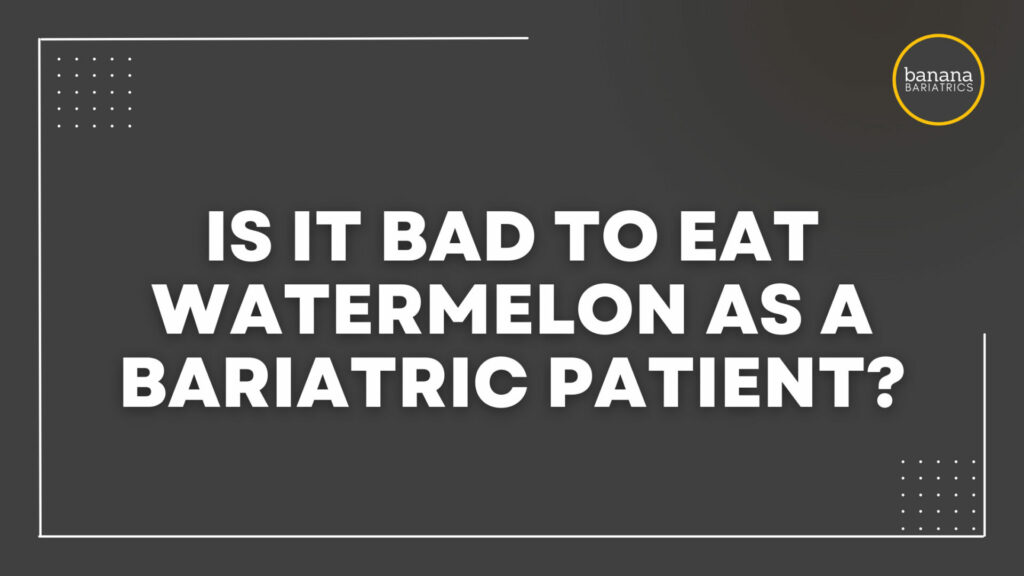
During the summer months, do you find yourself enjoying watermelon for the extra hydration and the soothing effect on your stomach? Have you ever wondered if it is bad to eat watermelon as a bariatric patient? While watermelon is a fruit and is therefore a healthier option than other snacks or desserts, it is still high in sugar and can pack a heavy carbohydrate load on our diets when over-consumed. In this week’s blog post, we’re going to understand how to incorporate watermelon into our lifestyles in a healthy way.
Watermelon As A Slider Food
Slider foods are easy foods you can tolerate consuming in large quantities without feeling overly full or satisfied. Think- chips, crackers, chocolate, smoothies, sweets and popcorn. Unfortunately, slider foods can pack a heavy caloric punch and they don’t offer any impressive nutritional benefits to your body.
Watermelon – despite being a fruit- is considered a slider food due to the easy nature of over-eating a standard serving size. As a result of this, we end up having significantly more grams of carbohydrates and sugar in our daily diets.
While on the topic of slider foods- grapes can also be considered a fruit slider food as well.
Can Watermelon Cause Dumping Syndrome?
If eaten by itself, there is a chance that a bariatric patient- especially bypass, Switch, and SADI patients- can experience dumping syndrome. Dumping syndrome is the unpleasant symptoms some bariatric patients experience when high fat/ high sugar foods empty too quickly from their stomach. Symptoms can include diarrhea, nausea, and fatigue after eating.
If you enjoy eating watermelon as a bariatric patient, you can still do so safely without experiencing dumping syndrome. To prevent these symptoms from occurring if you’d like to enjoy a slice or two of watermelon, make sure you’re always eating protein first at every eating opportunity.
If you’re having it as a side with your meal, start with your main source of protein first (ie: chicken) so that your stomach is filled with a macronutrient that will “bear the brunt” of the sugar-kick that will come from the watermelon. By eating protein first, blood sugar swings are dampened and more easily controlled.
How Much Watermelon Should You Consume On A Daily Basis?
When speaking to my own patients in clinic, I typically recommend no more than 2 servings of fruit per day.
1 serving of fruit = 1/2 banana OR 1 small apple OR 1/2 cup of cut up fruit.
If you’re not sure how much 1/2 cup of fruit is, simply cut your watermelon slices into little chunks and measure them out in measuring cups. This is the best way to see how much watermelon you may be consuming (or over-eating) per day.
If you are eating 1 cup of watermelon per day (paired together with protein, of course!), then you would hold off on any other fruit for the day as you would have reached your fruit quota.
Again- this is just my own nutritional guidance that the bariatric dietitians and providers follow in our clinic. The reason I like the limitation on 2 servings of fruit per day is to really help with limiting total grams of sugar to <20g per day.
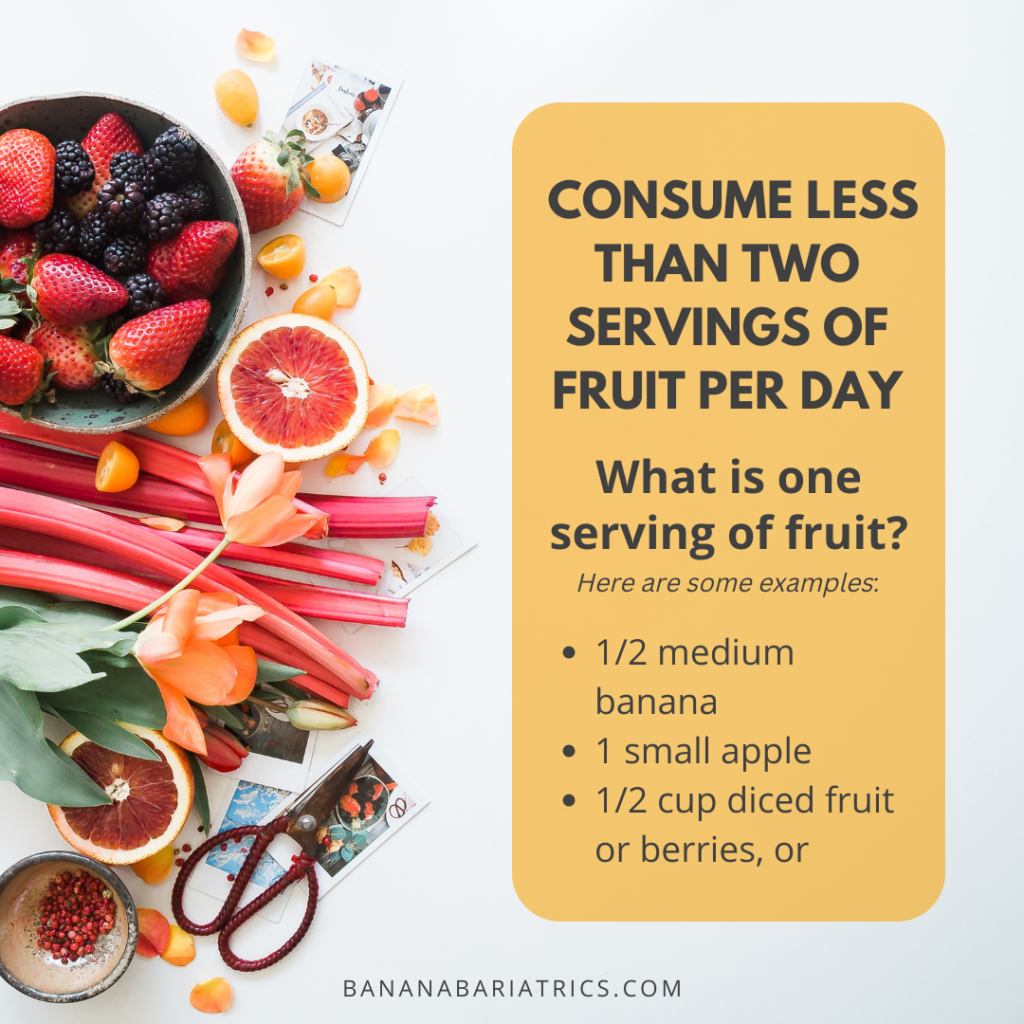
What Fruit To Eat After Bariatric Surgery
If you love fruit and are wondering which fruits are best to eat after bariatric surgery, my advice is to stick to berries. “Berries are best.” All berries will be high in antioxidants and fiber, ie: strawberries, blueberries, blackberries, raspberries, etc.
Personally, when I’m having a sweet and salty craving, I’ll sometimes make myself 1/2 cup of frozen mixed berries, throw it in the microwave for 45 seconds (so it’s still chilled) and then drizzle it with 1 tsp of peanut butter (no added sugar). That way, my fruit intake is buffered with a little healthy protein and fat and my cravings for something sweet and salty are met.
Counting Watermelon Toward Your Daily Water Goal
Unfortunately, watermelon does not count toward your water goal.
However, try this quick recipe (inspired by Bariatric Dietitian Kristin Willard) to incorporate watermelon into your diet without all of the accompanying sugar and carbohydrates:
- Fill a pitcher full of water
- Cut up a few big chunks of watermelon (without the seeds) and add to the pitcher
- Include a handful of fresh mint leaves
- Stir and leave the pitcher in the refrigerator overnight
- Take out all of the mint and watermelon except a few pieces
- Blend in a blender/ Vitamix until mixed
- Pour into ice cube trays
- Pop out a few ice cubes into you glass of water to act as a natural watermelon (& mint) diffuser for your beverage!
I have tried this recipe myself and it is absolutely delicious and refreshing on a hot summer day.
In Summary
There is absolutely nothing wrong with eating watermelon as a bariatric patient. During the warm summer months of the year, watermelon can feel like such a refreshing treat to enjoy. Unfortunately- as a slider food- it can come at the expense of significant grams of sugar and carbohydrates. Therefore, limit your intake to no more than 2 servings of fruit per day and pair it with protein. Better yet, use a few pieces to diffuse it in water as a way to help hit your water goal while simultaneously scratching your watermelon “itch.”
Need Extra Support With Nutrition?
If you’re looking for a one-stop-shop to learn what to eat, how to cook, ad how to maintain your weight loss after bariatric surgery- look no further than our Nutritional Masterclass course. Inside, you’ll circle back to the bariatric basics to understand serving sizes, macronutrients, and the importance of hydration after surgery. From there, you’ll dive deep into the effects of sugar on the body, how to “eat clean,” build a meal plan for the week and feel inspired to start cooking again in the kitchen.
Learn more about our Nutritional Masterclass course, here.
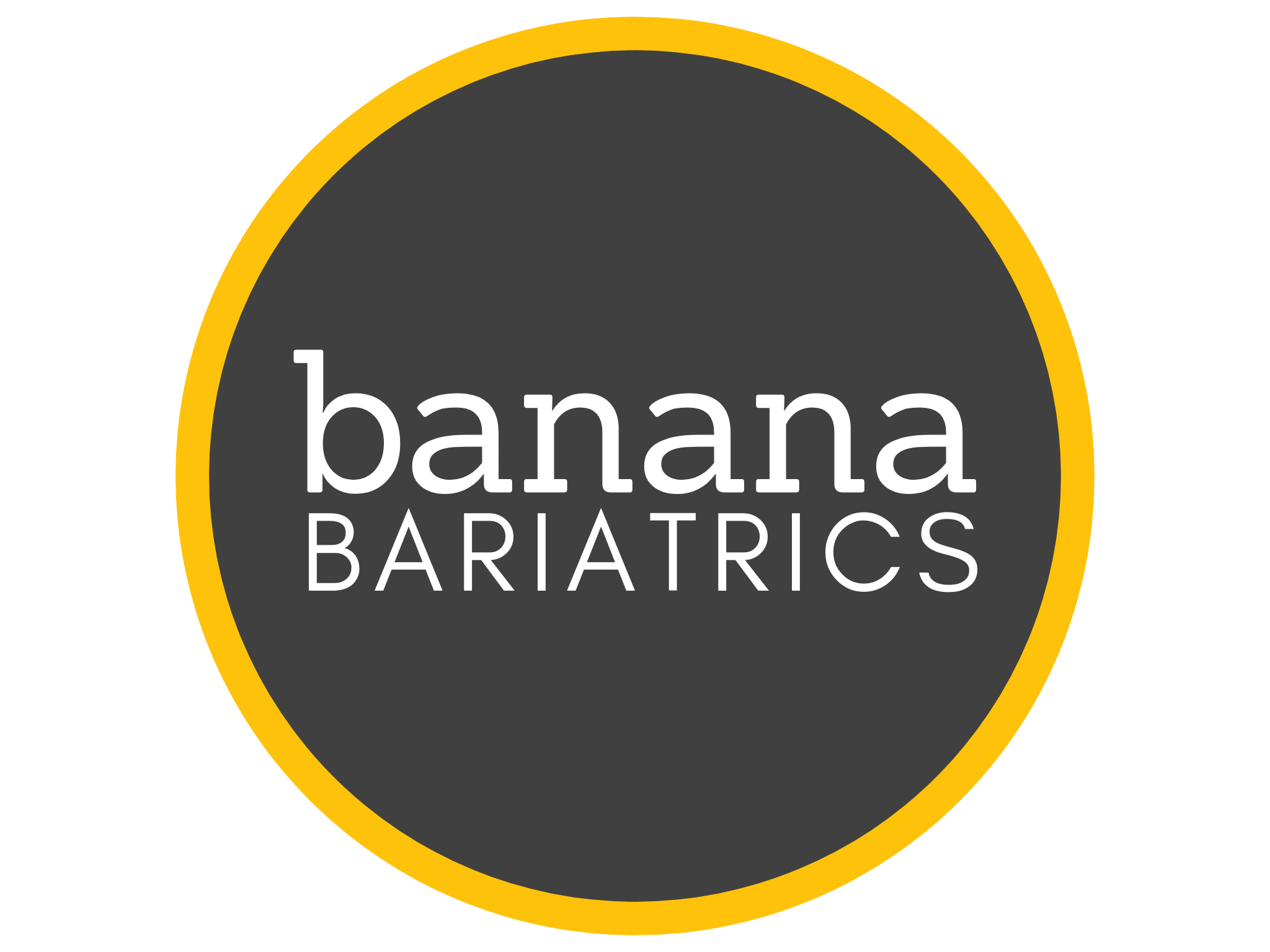
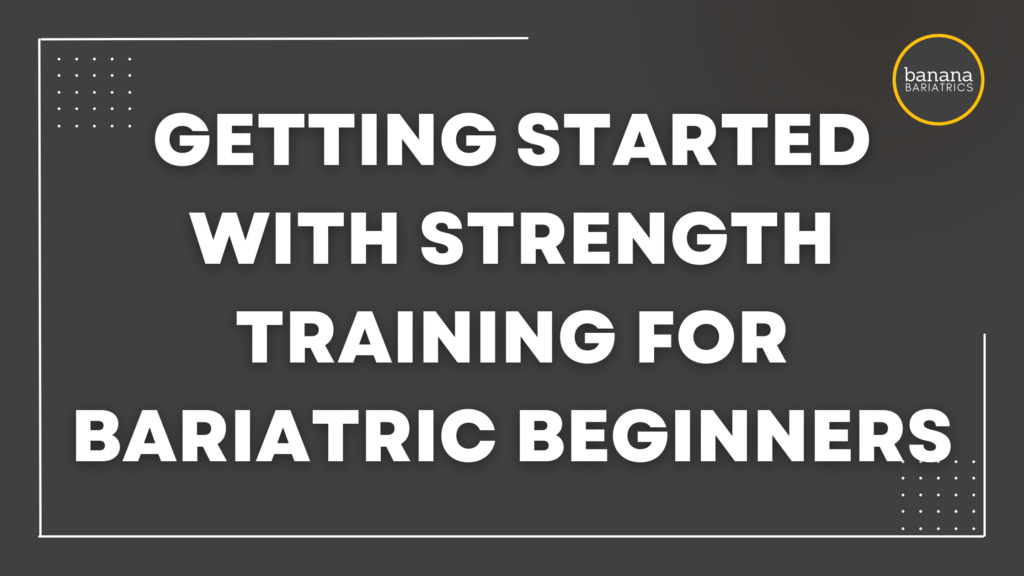
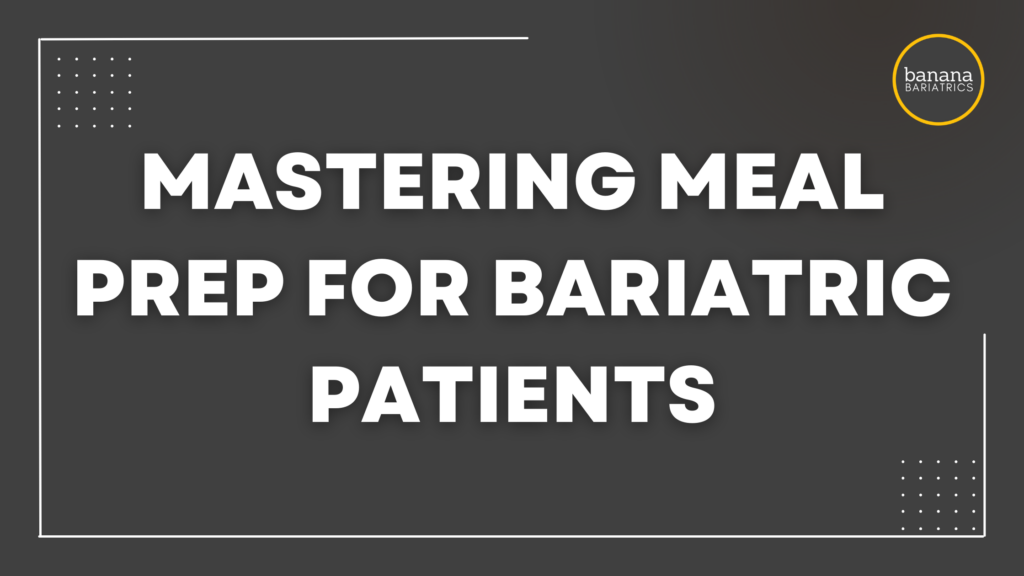

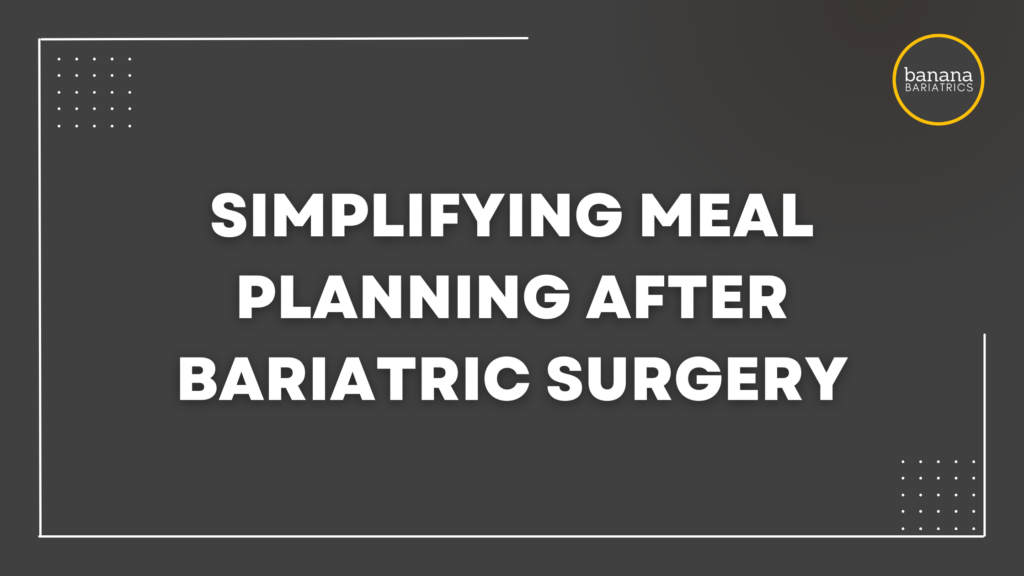
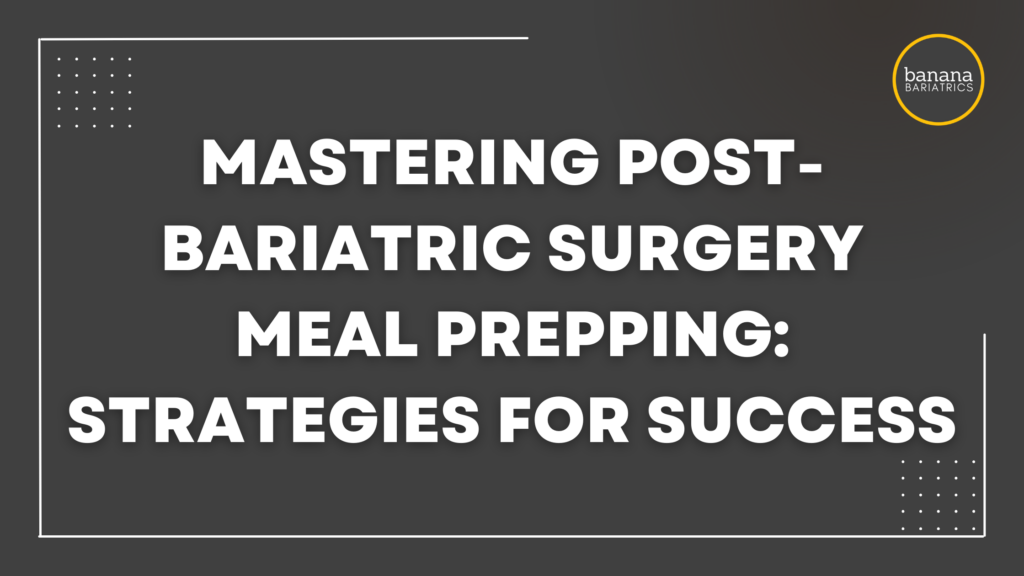
Responses